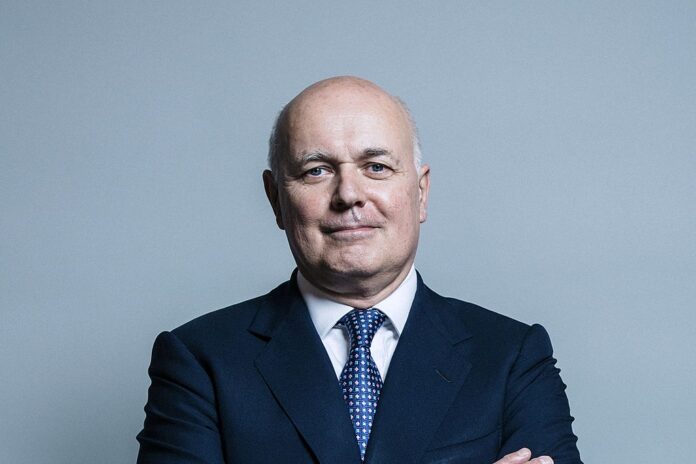Conservative figures push for new regulations following revelations of gambling among party members during recent elections
Calls for stricter regulations on political betting have intensified within the Conservative Party, triggered by a scandal involving several Tory candidates and aides allegedly placing bets on election outcomes. The controversy has prompted former party leaders and senior officials to advocate for immediate action to address ethical concerns and potential conflicts of interest.
The issue gained prominence when former Conservative leader Iain Duncan Smith emphasized the need for parties to reassess their rules regarding political gambling once parliament reconvenes. Tobias Ellwood, former defence minister, echoed these sentiments, advocating for new restrictions to prevent such practices in the future.
The Conservative Party has initiated its own investigation into allegations that members, including high-profile figures like Rishi Sunak’s aides and candidates like Laura Saunders and Tony Lee, engaged in betting activities related to the timing of the recent election call. While Sunak denied personal involvement in any bets, the controversy has drawn the attention of the Gambling Commission, which has been urged to probe unusual betting patterns around the election announcement.
Embed from Getty ImagesOne significant bet under scrutiny was a £504 wager placed just before the election announcement, speculating that Sunak would remain Prime Minister until the 2024 election. Critics argue that such bets may indicate insider knowledge and could influence political decisions, undermining democratic processes.
The Gambling Commission’s investigation encompasses a broad range of bets placed on election timing, examining potential breaches of gambling regulations. The involvement of a Metropolitan police officer, linked to Sunak’s security detail, has further escalated concerns and led to calls for decisive action within the Conservative ranks.
Steve Baker, Northern Ireland minister, expressed readiness to suspend any party member found guilty of betting on political outcomes, highlighting internal pressures within the party leadership to address the issue promptly. Duncan Smith emphasized public disapproval of politicians gambling on matters affecting governance and societal welfare, calling for swift corrective measures.
The Guardian
In response to the escalating election betting scandal involving the Conservative Party, senior Tories and campaigners are advocating for a ban on political bets by MPs and officials. This call comes amid revelations and investigations into several Tory figures allegedly placing bets on the timing of the election, raising serious ethical concerns.
Former Conservative leader Iain Duncan Smith and former defence minister Tobias Ellwood are leading the charge for new rules to prohibit politicians from engaging in political betting. They argue that such activities undermine public trust and integrity in politics, especially when individuals close to political decisions use insider knowledge for personal gain.
The Gambling Commission has been urged to scrutinize a £500 wager placed on Prime Minister Rishi Sunak’s tenure before the 2024 election announcement. This bet, placed just before the election date was revealed, has sparked further inquiries into potential breaches of betting regulations and ethical standards.
The Conservative Party itself has launched an internal investigation into whether its members and officials engaged in unauthorized betting activities related to the election. Sunak has denied any personal involvement in such bets and has pledged cooperation with the Gambling Commission’s inquiries.
Critics within and outside the Conservative Party have likened the seriousness of this scandal to previous controversies like Partygate, highlighting concerns about transparency and accountability among political leaders. Calls for immediate suspensions of implicated individuals pending investigations have intensified, with some Tories expressing frustration over perceived delays in taking disciplinary actions.
In contrast, Labour has not proposed restricting political betting among its candidates and staff, as long as bets are not based on insider information. However, other voices, including Liberal Democrat peer Don Foster and campaigners like Will Prochaska, advocate for a complete ban on all forms of political betting to safeguard the integrity of the electoral process and prevent potential misuse of confidential information for financial gain.
The ongoing scandal continues to unfold as the election date approaches, casting a shadow over the Conservative Party’s campaign and prompting broader discussions about regulatory reforms to prevent similar incidents in the future.
BBC
Rishi Sunak, amidst a contentious election season, faces challenges stemming from a gambling scandal involving several Conservative Party members and officials. The scandal centres on allegations that individuals close to Sunak placed bets on the timing of the general election, potentially exploiting insider knowledge. Sunak himself denied any involvement in these bets but acknowledged the public’s hesitancy in supporting the Tories, attributing it to recent national challenges such as the COVID-19 pandemic and international conflicts like the Ukraine crisis.
At campaign events, Sunak emphasized that despite past difficulties, the election is about choosing the future direction of the country rather than solely evaluating the party’s recent performance. He urged Conservatives not to “surrender” to Labour, rallying them to fight for every vote based on their values and vision for Britain. However, his campaign efforts are shadowed by accusations from Labour leader Keir Starmer, who suggested that Sunak might be delaying internal party investigations into the gambling scandal until after the election, raising concerns about political motivations.
Meanwhile, the Gambling Commission, under pressure from Labour, declined to publicly disclose the identities of individuals under investigation, citing the need for confidentiality during ongoing inquiries. This decision underscores the sensitive nature of the allegations and the potential impact on the election’s integrity.
Overall, Sunak’s campaign strategy reflects a dual approach of addressing voter concerns and managing internal party issues amidst the fallout from the gambling scandal. His challenge lies in maintaining Conservative momentum and voter trust while navigating the complexities of a tightly contested election and the shadow cast by the ongoing investigations.
